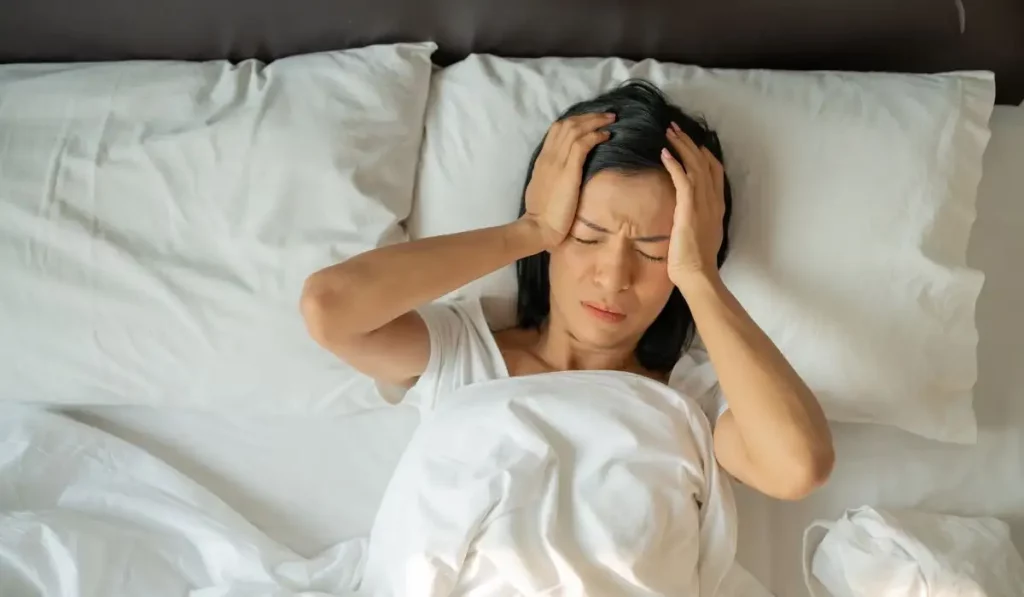Experiencing chronic pain is like a constant fight, with similarly restless nights as well as days. What if improving your sleep could be the main way to ease your pain? You will discover through this blog how better sleep can help alleviate chronic pain for an extended period. You’ll gain skills to improve your sleep, understand why good sleep is necessary for pain relief, and discover how SleepMentor helps you unlock a healthier path. Get ready to find the powerful link between sleep and chronic pain relief and restful nights.
How Sleep Affects Pain: Understanding the Cycle
There is a strong relationship between pain and sleep. When you can’t sleep well because of pain, you miss essential time for healing, so the pain gets worse the following afternoon. On the other hand, not sleeping well can lead to higher sensitivity to pain. Good sleep helps manage pain, so paying attention to your sleep is key to controlling it. Understanding how sleep affects pain allows you to break this cycle and take control of both your rest and relief.
Bedtime Routine for Chronic Pain: Setting the Stage for Relief
A simple bedtime routine can make you feel comfortable and reduce body pain at night. A bit of stretching, reducing light in your room, or working on relaxation helps your body understand it’s time for bed. Eating lightly and not using screens in the hours leading up to bed enables you to sleep naturally. Having this continuous routine improves your sleep habits and lessens chronic pain. Incorporating a bedtime routine for chronic pain is a slight change that significantly impacts your quality of rest.
Sleep Tips for Pain Management: Practical and Effective
There is more to sleep hygiene than just trying to sleep early. It’s concerned with making your space and routines conducive to peaceful sleep every night. A peaceful, dim, and quiet room, less caffeine, and gentle bedding can all help you sleep better when you have pain. These sleep tips for pain management can ensure your rest is recuperative, thus making your daily pain more bearable.
Improving Sleep With Pain: Overcoming the Challenges
It’s tough to fall asleep when you have chronic pain, but it can be done. Mindfulness and controlled breathing help to lower mental stress caused by pain. Before going to sleep, use heat or cold on your body to soothe sore muscles. These strategies focus on improving sleep with pain by addressing the physical and emotional aspects hindering restful sleep.
Deep Sleep and Pain Recovery: Unlocking Healing Power
While sleeping deeply, your body fixes damage, cuts back on inflammation, rebuilds tissues, and gets hormones back in harmony. Sadly, persistent pain tends to interfere with this vital phase, slow down healing, and add to tiredness. A healthy routine and less stress can strengthen the body’s way of coping with pain while you sleep. Setting goals for deep sleep and a swift recovery from pain helps you achieve lasting support and feeling well.
Access SleepMentor, and we’ll help you sleep better and feel less pain.
At SleepMentor, we know that sleep can be closely linked to chronic pain. To help you manage your pain without medication, we have developed advice and resources for better sleep. Whether new to better sleep habits or already improving, SleepMentor is here to help you rest better and control your pain.
Conclusion
Managing chronic pain is not limited to treating your symptoms—it should also focus on helping your body heal, and good sleep supports that. By understanding sleep and chronic pain relief, developing a soothing bedtime routine for chronic pain, and applying practical sleep tips for pain management, you set yourself on a path to better rest and less pain. A good, uninterrupted sleep helps you recover, and SleepMentor is here to guide you. A peaceful and healing night is easy to get hold of.





